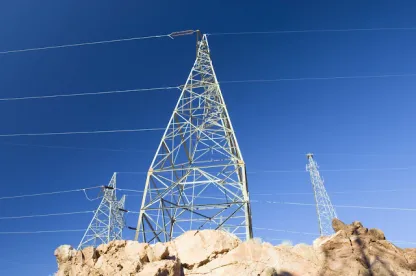Earlier this year, FERC held four technical conferences to discuss the implications of state, regional and/or federal plans for compliance with EPA’s proposed Clean Power Plan (CPP) rule to set carbon emission limits for existing electricity generating units. A major issue raised was the impact of the CPP on electric grid reliability as coal-fired generators are retired to meet compliance requirements. As noted in a previous post on this blog, what has been unclear is the action – if any – FERC may take to address the concerns regarding a rulemaking over which the Commission lacks jurisdiction. A recent exchange of letters between EPA and FERC provides some clarity.
In a May 6, 2015 letter to FERC Chairman Norman Bay, EPA’s Acting Assistant Administrator for Air and Radiation Janet McCabe noted that EPA will be “intently focused on the issue of reliability,” that it is incumbent on EPA to craft a rule that “provides sufficient time, flexibility and latitude” for states, utilities and reliability entities to take actions to ensure reliability, and that EPA is reviewing suggested mechanisms for addressing reliability concerns. The letter also said that staff members of FERC, EPA and DOE are planning for the agencies to coordinate their activities regarding reliability after the CPP rule is issued and are developing a working document to guide those efforts.
In response, a May 15, 2015 letter to EPA signed by all five FERC Commissioners discussed how FERC can fulfill its responsibility on Bulk-Power System reliability after EPA releases a CPP final rule, and focused on two mechanisms suggested at the conferences.
Reliability Safety Valve. This would be a process for modifying compliance obligations when unforeseen delays in implementation efforts could risk harm to grid reliability. If EPA adopts this mechanism, FERC could review a claim that unforeseen or emergency conditions would result in a violation of a FERC-approved reliability standard, identify issues, and evaluate any proposed mitigation to determine whether it would resolve the problem. FERC’s letter advised that “in this narrow role,” the Commission will not opine on other issues that EPA could consider, such as whether the applicant or EPA should pursue different options. FERC offered its staff to help EPA on the information needed for a FERC review.
Reliability Monitoring and Assistance. This would be a process for reviewing state compliance plans for their impacts on reliability. FERC says reviewing state plans for reliability concerns should rely primarily on existing processes by planning authorities such as the RTOs, ISOs and regional reliability coordinators. The Commissioners did offer a limited set of functions FERC could perform, including reviewing others’ analyses, suggesting additional analyses or in limited cases performing its own analyses, providing input on a particular plan if requested by EPA, and conducting outreach activities.
The Commissioners tempered this offer with a note of political caution. The letter noted that FERC’s role in reliability is limited by its statutory authority to approve and enforce reliability rules and by how its rate jurisdiction affects reliability. It pointed out that reliability also depends on factors beyond FERC’s control, such as state authority over local distribution and integrated resources planning, and that the Commission “is not seeking to alter this balance of Federal and state roles or to assert authority over state plans.”
FERC’s letter did not calm the controversy over whether the proposed CPP rule would compromise reliability. According to a post on the Governors’ Wind Energy Coalition site, Robert Dillon, a spokesman for Senator Lisa Murkowski, chairwoman of the Senate Energy and Natural Resources Committee, called the letter a “positive step, and it’s good to see the commission responding to the concerns it heard during the recent round of technical conferences. Now we expect EPA will cooperate with the agency responsible for actually ensuring the reliability of the grid.” However, David Weiskopf, an attorney for NextGen Climate America, said there is sufficient technical analyses that have found no cause for reliability concerns, adding “[t]hat’s why, rather than recommending any new procedures or endorsing any utility requests for less protective emissions reduction targets, FERC has instead offered to assist EPA as the Clean Power Plan is finalized and implemented, in case any of these industry claims are eventually found to have genuine merit.”
EPA’s website says the proposed CPP will be finalized by mid-summer.




 />i
/>i

